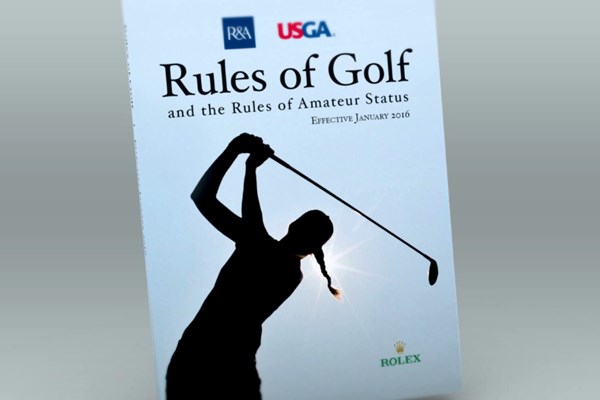Tee Times Portugal Golf – Rules of Golf Are Changing in 2016 – This Are The Most Significant Changes
With just less than two months to get into the new year, the Royal & Ancient and the United States Golf Association (USGA) announced the publication of the 2016 edition of the Rules of Golf to enter into force next January 1st.
As every four years, these two institutions governing world golf adapted and reviewed – there are always different views on some aspects of the same – the rules that apply to everyone and to all golfers.
The most significant changes from the 2016 edition, published by the Spanish Golf Federation, are:
Elimination of Ball Moved Rule After Preparing the Shot: Rule 18-2b has been deleted. This means that if a ball at rest is moved after the player has addressed the ball, and not automatically considered the player has caused the ball to move. The penalty stroke under Rule 18-2 applies only when the facts demonstrate that the player has caused the ball to move.
Limitation to the Disqualification Penalty for Delivering a Wrong Result Exception: Entered a new exception to Rule 6-6d (Result Wrong for Hole) to provide that a player is disqualified for returning a lower result for a hole that actually obtained as a result of not including penalty strokes that the player did not know he had incurred before returning the scorecard. Instead, the player incurs a penalty under Rule infringed and should add an additional penalty of two strokes for the error in the scorecard. In all other cases where a player returns a score for any hole lower than actually taken, the penalty will be disqualification.
Modification of the Penalty for the First Inappropriate Use of Artificial Devices or Equipment: The penalty for a first offense Player Rule 14-3 (Artificial Devices, Unusual Equipment and abnormal use of the equipment) during the round has been reduced from disqualification to loss of hole in match play or two strokes in stroke play. The penalty for any subsequent breach of Rule 14-3 remains disqualification.
Ban Club Anchor While a Stroke is Executed: As announced in May 2013, the new Rule 14-1b (Anchor the Club) prohibits anchor the club, either “directly” or through the use of a “fulcrum “making a stroke. The penalty is loss of hole in match play or two strokes in stroke play.
David Rickman, Executive Director of Rules and Equipment Standards R & A said: “We continually seek ways to improve and clarify the Rules of Golf. The R & A and USGA work closely and consult with our respective national and international advisory members to produce a code of rules that serve all golfers in the world.”
Thomas Pagel, senior director of Rules of Golf USGA, said: “The goal in each four-year cycle of the Rules is to monitor closely developments in the game and, if necessary, respond to changes to keep in mind that It is best for the game. 2016 amendments to preserve and enhance the essential principles of the Rules, while at the same time ensure respond to the evolution of the game. ”
Additional comments on the main changes
Under Rule 18-2b, it is automatically assumed that a player whose ball moved after preparing the blow had caused the ball to move. In 2012, an exception to Rule 18-2b was introduced to cover situations in which it was known or virtually certain that the player did not cause the ball to move, but the application of that rule was not always clear. The removal of Rule 18-2b means that there will be no presumption that the same standards of Rule 18-2 apply to all actions of the player: if the facts show that the fact that the player prepare the stroke or perform other actions they caused the ball to move, the player will have a penalty stroke.
The introduction of the new Exception to Rule 6-6d keep the importance of returning a card of correct results penalizing the player with two strokes for the error in the scorecard, in addition to the penalty for the original underlying breach of the Rules. In all other cases where a player returns a score card with a lower result than actually taken in a hole, the player will be disqualified.
In addition to the review of the penalty for a first offense of Rule 14-3 a player during a round, you have entered a declaration to the principle of Rule 14-3 to explain that the governing bodies are governed by the principle that “The success should depend on the judgment, skill and ability of the player” in determining whether the use of any artificial device or computer is a breach of Rule.
The R & A and the USGA announced in 2013 that the new Rule 14-1b prohibiting anchoring the stick to make a stroke would take effect in the 2016 edition of the Rules. The rule was adopted after an extensive review by both organizations. For an explanation of the reasons for adopting Rule 14-1b and guidance on the application of the rule, see RandA.org/Anchoring.
Source: OpenGolf.es
Courtesy of: Tee Times Golf Agency – Your Best Partner in Portugal & Spain! Have the best golf break with us. We take care of all the bookings and reservations, you just play, relax and have fun! Call us now: +351 289 300 680. Or contact us.


